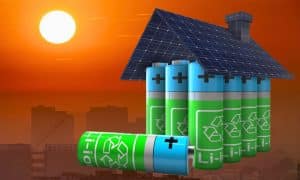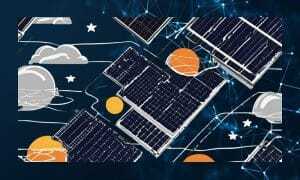The WA state budget 2022-23, handed down today, includes $60 million to accelerate the use of zero-emission vehicles.

The state’s Clean Energy Car Fund includes $36.5 million for $3,500 rebates for the first 10,000 people who buy an electric or hydrogen fuel cell vehicle with a price tag of less than $70,000. The budget includes $22.6 million to expand WA’s electric vehicle charging network and an additional $31 million for climate action research and planning.
In less welcome news, the government has also announced the introduction of a new road-user tax for low emissions vehicles commencing in 2027.
As individuals and businesses navigate these changes, exploring sustainable options, such as solar energy solutions, becomes increasingly relevant. For tailored insights, consider consulting with Energy Matters for free solar quotes that align with the evolving landscape of clean and efficient energy.
Below is a breakdown of the key announcements.

$3,500 EV Rebate “Most Generous” in Australia
In a media statement on Tuesday, the McGowan Government said the new Zero Emission Vehicle Rebate Scheme will assist Western Australians in their transition away from petrol-fuelled vehicles, claiming that doing so will not only benefit the environment but also deliver significant fuel cost savings to the tune of $1,400 per year.
Premier Mark McGowan said the $3,500 rebate, one of the most generous on offer in the country, will assist the state’s net zero ambitions by cutting carbon emissions by at least 7,000 tonnes each year while also “reducing the pressure of high petrol prices on WA households that utilise the rebates”.
Applications for the rebate opened on May 10. Further information on eligibility critieria and how to apply can be accessed here.
Related article: Can You Use an Electric Vehicle to Power Your Home? Bi-Directional Charging
New Charging Infrastructure Grants and Investments
Besides the upfront cost of electric vehicles, one of the greatest barriers to EV uptake is range anxiety. Drivers don’t want to get ‘caught out’ without a charge, so the provision of reliable and accessible public fast-charging infrastructure is crucial to boosting confidence and encouraging people to switch.
The McGowan Government’s budget includes $22.6 million to expand WA’s electric vehicle charging network, with a focus on establishing charging infrastructure in strategic locations including small to medium businesses, train stations and along key highways and road corridors.
The 2022-23 budget includes:
- $10 million to support not-for-profits and small and medium-sized businesses with grants of up to 50 per cent of the installing charging infrastructure costs;
- $5 million to support local government’s install charging infrastructure by providing grants of up to 50 per cent of the installation cost;
- $4 million for the Public Transport Authority to trial the installation of electric vehicle charging infrastructure at four train stations, providing up to 20 bays per car park with commuter charging access; and
- more than $2.9 million in eight new charging stations across four locations on a section of National Highway 1 between Norseman and Eucla to ensure WA’s electric highway extends to South Australia.
$31M Climate Action Research and Planning
Building on the McGowan Government’s $750 million Climate Action Fund announced last year, the state will be allocating $31 million towards the development and implementation of strategies to transition the agriculture, freight and regional heavy transport industries to net zero as part of its Sectoral Emissions Reduction Strategies.
Highlights include funding specialist research to transition the state’s bus fleet to electric vehicles, and the development of a Carbon Farming Industry Development Plan.

New EV Road-User Tax “Necessary”
While the Clean Energy Car Fund bodes well for Western Australians looking to switch to an electric vehicle, it’s not all good news on the horizon. From 2027, electric and hybrid vehicle owners will be taxed per kilometre to use Western Australia’s roads.
Set at 2.5 cents per kilometre for electric and hydrogen vehicles and 2 cents per kilometre for plug-in hybrid vehicles, the new road-user charge is being introduced as a funding mechanism instead of the fuel tax, which electric vehicle drivers do not pay.
Similar distance-based road user charges for EV drivers have also been introduced in Victoria, NSW and South Australia.
The McGowan Government says that the tax is necessary to help maintain WA’s road network.
“Unfortunately, we have to fund the roads, we have to put money into maintenance, and we have to have a funding source for that,” Premier Mark McGowan said.
“This initiative will mean more people can take up the opportunity to buy an electric vehicle and reduce their carbon emissions, reduce their fuel costs, reduce their dependence on fuel,” Mr McGowan said.
The announcement has been met with criticism from several industry pundits, with some calling it a “a backward and unnecessary step” and “a great big new tax on not polluting”.
“Penalising electric car owners because they don’t consume petrol that pollutes the atmosphere and our environment is absurd,” said Noah Schultz-Byard, SA director at The Australia Institute.
Speaking to ABC News, Australian Electric Vehicle Association President Chris Jones said that while the road user charge is not “a bad idea in itself”, it could be implemented in a way that was fairer to EV users.
“It’s not like we’re freeloading,” Mr Jones said.
“It’s not like we haven’t paid our taxes and if we genuinely want to charge people for the damage they cause to the roads, then we should be multiplying it by the mass of the vehicle as well.
“Because the heavier the vehicle, the more damage it does to the road. And if we can factor that in, I think it will be fairer.”












































